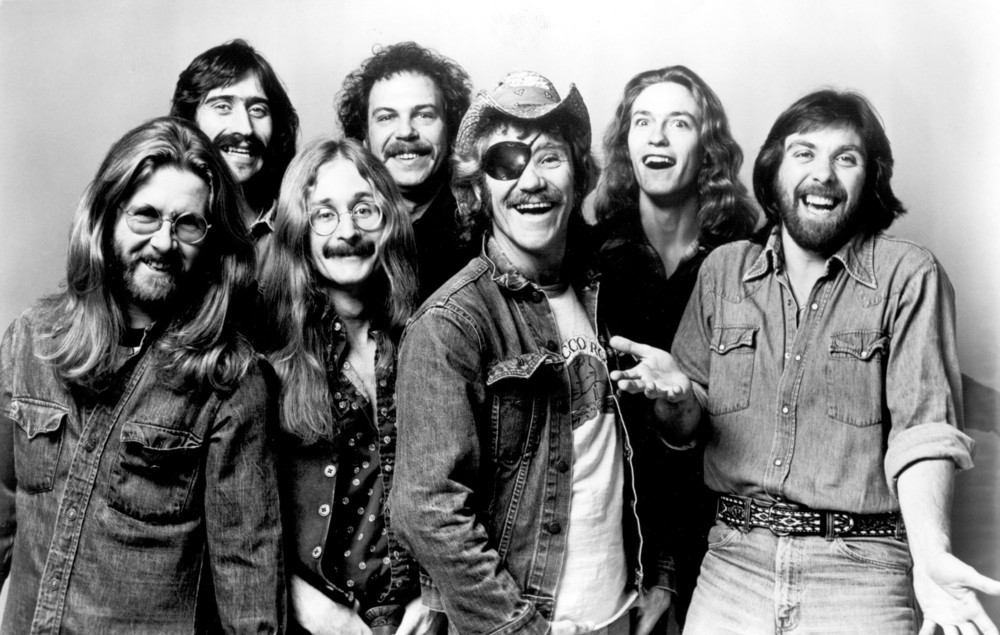
A smiling song with a worried heart—“When You’re in Love with a Beautiful Woman” lets Dr. Hook turn late-’70s shine into a confession older listeners know by feel: desire isn’t the hard part; learning how to live with it is.
Key facts, right up front. Written by Even Stevens and produced by Ron Haffkine, “When You’re in Love with a Beautiful Woman” was cut at Muscle Shoals Sound and first appeared as an album track on Pleasure & Pain in 1978. It was released as a single in April 1979, with different B-sides in the U.S. and abroad, and it became a belated smash: No. 6 on the U.S. Billboard Hot 100, and No. 1 in the U.K. in November 1979. Riding that momentum, the song was also folded into the 1979 LP Sometimes You Win; by year’s end it ranked No. 13 on Billboard’s Hot 100 list of 1979.
There’s a colorful backstory to how the tune got cut. Songwriter Even Stevens has told the story of chasing producer Ron Haffkine into a studio bathroom to pitch the song on the spot—a nervy move that worked. (Stevens has retold it in songwriter interviews, and you’ll see that anecdote echoed in reference write-ups.) It fits the record you hear: a tune that feels like it arrived all at once—melody, premise, and grin—then waited a year for the world to catch up.
Who’s singing? By this point in the band’s story, the smooth, soulful lead of Dennis Locorriere was fronting many of the hits—this one included—with Ray Sawyer’s unmistakable presence still defining the group’s look and harmony blend. Industry obits and session lore alike point to Locorriere’s voice as the engine that carried “Sharing the Night Together,” “When You’re in Love with a Beautiful Woman,” and later “Sexy Eyes.” (One studio account even notes that a Locorriere guide vocal became the keeper take.) Either way, it’s the warmth in that lead—relaxed, conversational—that makes the lyric feel confided rather than proclaimed.
As music, the record sits at the easy intersection of soft-rock and disco—a supple backbeat, satin-bright guitars, and just enough shimmer on the keys to place you squarely in 1979 without turning the track into a museum piece. That Muscle Shoals transparency helps: the band plays in clean lines, giving the voice space to tell its story while the groove does the smiling. It’s the kind of radio craft that made everyday rooms—kitchens, car interiors, corner bars—feel briefly more generous.
And what’s the story? Beneath the breezy hook is a quietly adult admission: loving someone magnetic rewires a life. You start checking your own reactions, clocking friends’ glances, listening too closely when the phone rings and no one’s there. The song doesn’t scold you for that vigilance, but it doesn’t glamorize it either. Instead, it names the tension with a shrugging honesty older listeners recognize—this is the cost of loving someone the world keeps noticing. That’s why the chorus feels both buoyant and rueful; it sells the romance and the reality at once.
The chart tale underlines the era’s open borders. America took it Top-10 in the summer of ’79; Britain sent it all the way to No. 1 as autumn arrived. It’s the rare single that sounded right wherever it landed: as an R&B-tinted pop record in the U.S., and as a polished sing-along in the U.K. A year after its quiet album debut, the same recording simply found its hour—and then lived on two consecutive albums, a tidy testament to just how broadly it connected.
For those who carried the song forward, part of its meaning is the way it refuses melodrama. No door-slamming or grand speeches—just a man admitting that love can make you careful, even a little guarded, when the rest of the world loves what you love. That tension never resolves into cynicism; the groove won’t let it. It keeps the singer moving, keeps the room moving, and turns fretfulness into something like grace: I’ll keep showing up anyway.
It also marks a pivot in Dr. Hook’s larger story. The early-’70s hits written by Shel Silverstein gave the band their mischievous mask; the late-’70s radio smashes—this one especially—revealed a steady adult pop outfit with a soul streak and impeccable timing. Producer Ron Haffkine shepherded both eras, and you can hear the continuity: songs chosen for their feel, arranged with just enough gloss to travel, sung as if the mic were six inches from your face. That’s why “Beautiful Woman” endures beyond nostalgia: it still sounds like a person talking to you, not at you.
Play it now and you may recall small scenes more than headlines: a cracked-open window on a summer night; a radio propped on a sill; the way a simple chorus could make you smile while it told an inconvenient truth. The record hasn’t lost that touch. It remains a modest wonder of its moment—cut in Alabama, dressed for Top-40, built to travel—and, for many of us, a reminder that the best pop songs don’t solve anything. They name it kindly, set it to a beat, and let you breathe again.
At a glance: first issued on Pleasure & Pain (1978); single released April 1979; US Hot 100 No. 6, UK No. 1 (November 1979); later included on Sometimes You Win (1979); Billboard year-end 1979: No. 13.